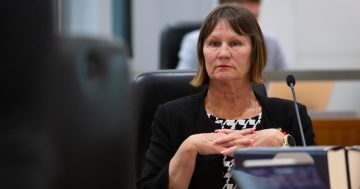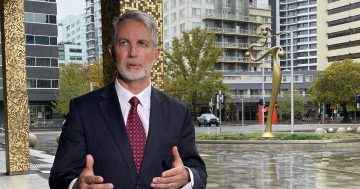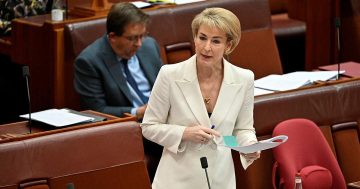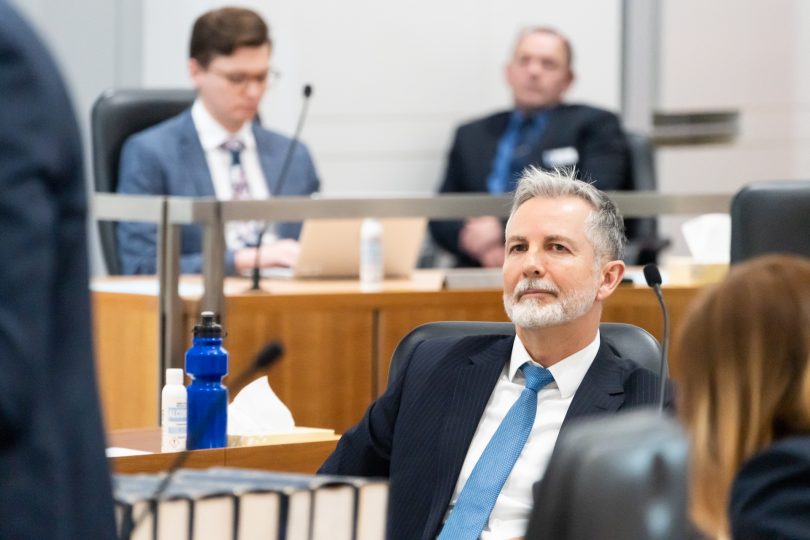
Opposition whip Jeremy Hanson accused the government of laziness in last week’s Assembly. Photo: Dominic Giannini.
The Opposition has accused the ACT Government of being a group of “lazy lefties” who want to “knock off… so they can get away on holiday”.
It was Opposition whip Jeremy Hanson who levelled the charges last week, during the middle of a debate on how many days the Legislative Assembly should sit for next year.
Mr Hanson said next year’s sitting calendar – which will see the Assembly sit for 35 days across 12 weeks – was too short.
But political and marketing expert at the ANU Dr Andrew Hughes isn’t so sure that fewer sitting days make the government “lazy”, nor does he think more sitting days equate to better government operations.
“How the days are used is equally important and, sure, sitting days are important to show people how democracy works, but I think weeks like budget estimates hearings are more important,” Dr Hughes said.
Estimates hearings allow officials and ministers to be scrutinised and questioned by members of parliament.
“It’s also becoming clearer that a lot of the heavy lifting is being done in committees which take up the time of MLAs and I’ve noticed much more engagement is happening online, rather than requiring question time in the chamber,” Dr Hughes noted.
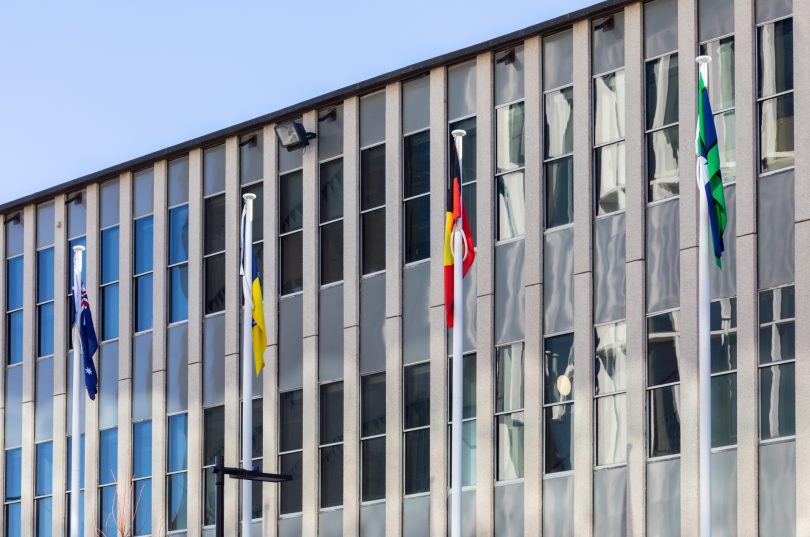
How long should our local assembly really sit for? Photo: Michelle Kroll.
Given the small size of the ACT’s Legislative Assembly, Dr Hughes said politicians were already overworked – each with portfolios to cover, as well as dealing with their own electorate.
The Hare Clark system, he said, was designed to keep every MLA accountable as there are no safe seats. This equates to politicians being expected to front up and spend time in their own communities alongside other duties.
“There is a real sense that we need more members of parliament as the city grows,” he said. “Compared to other states and territories, we might need to up it a bit.”
Dr Hughes noted the ACT’s population will surpass half a million people in only a few years and said a shake-up of the electorates could become necessary as areas like Molonglo continue to diversify.
He said another factor, perhaps unique to the ACT, is that the current government has held power for so long, a lot of people have lost faith in how the Legislative Assembly works.
“People begin to question how it works and whether anything actually changes,” he said.
Instead, he thinks questions would be better asked on how the operations of parliament itself could be reformed to make them more effective and more transparent.
“We want to know how ministers can be better held to account.”
The last sitting day before the summer recess this year will be Thursday 2 December. Assembly will resume on Tuesday 8 February.
Mr Hanson was deeply critical of this long summer break, accusing some politicians of wanting to spend the two-month period at their coast houses.
Again, however, Dr Hughes wasn’t sure this was quite reflective of the entire situation.
“Doesn’t half of Canberra go on holiday for this time of year anyway? You’re entitled to have holidays, and you probably want members of parliament to have holidays given the complexity of the issues they face daily,” Dr Hughes said.
He’s also pretty certain the majority of politicians will be taking some of the lengthy documents they are required to read and understand with them, even if they are at the coast over summer.
Wanting more diversity in parliament, according to Dr Hughes, also means wanting people who have families and want time off to spend with them.
He noted politics is the kind of job where you use your brain constantly, and one that requires support and sacrifice on behalf of family and friends in order to succeed.
“Many now think parliament should be a nine to five job rather than an all-day every day one where you give back and give back until you go under,” Dr Hughes said.
“I don’t think that’s healthy and I think the Canberra Liberals may have gone too far with this messaging.
“We need both an effective government and an opposition, not with either side pushed to breaking.”












